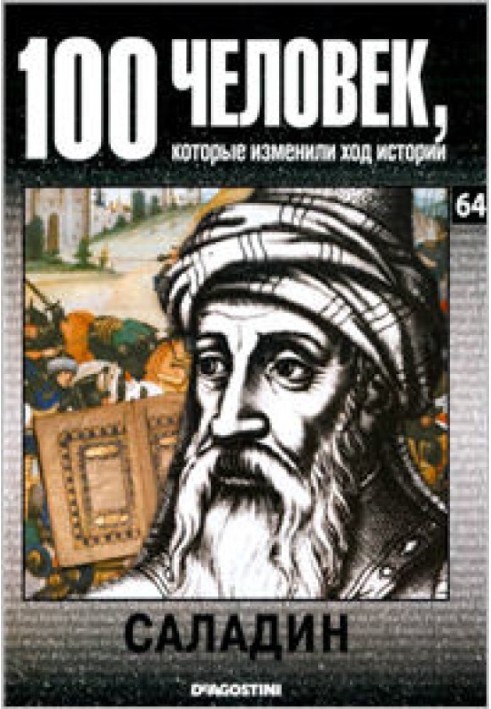Saladin
 Instant download
Instant download
after payment (24/7)
 Wide range of formats
Wide range of formats
(for all gadgets)
 Full book
Full book
(including for Apple and Android)
Saladin (Salah ad-din) (1138-1193), who, due to a series of accidents, rose to the heights of power, is perhaps the most famous commander of the Middle Ages in the East. His life coincided precisely with the period when there was a conscious need for political unification and defense of Islam during the Crusades. In 1164, Saladin, already the right hand of the commander Nur-ed-din in the war, participated in the liberation of Egypt from the crusaders. After the death of Nur-ed-din, he led the Arab army and fought with the crusaders and their states in the Holy Land - the County of Edessa, the Principality of Antioch, the Kingdom of Jerusalem, the County of Tripoli. Along with the title of commander-in-chief of the Muslim army, Salah ad-din received power over Egypt, conquered by the Arabs. In 1174, he carried out a coup d'etat and founded the Ayyubid dynasty. Saladin became the sovereign Sultan of Egypt, the largest state in the Arab world at that time. Over twelve years of continuous military campaigns, Sultan Salah ad-din conquered Syria and Iraq and became the recognized military leader of the Muslim world. Now the crusader states in the Middle East were surrounded on all sides by the possessions of the Egyptian Sultan, who vowed to expel the infidels and declared a holy war on them. Saladin managed to take possession of most of Palestine, Acre and, after a long siege, Jerusalem. Saladin restored Muslim power in Jerusalem, which they had lost in 1099. Unlike the crusaders, the Sultan acted nobly with his captives. He freed the deposed King of Jerusalem Guido de Lusignan, having previously taken his knight's word that he would never again take up arms against the Muslim world. Christians were given 40 days to leave the Holy City. In addition, Saladin guaranteed the privileges and immunity of Christian pilgrims visiting Jerusalem. With his successful actions, Saladin reduced to a minimum the gains of European chivalry during the Second Crusade of 1147-1149. The war for the possession of the Holy Land, and with it the Third Crusade, ended with the Egyptian Sultan Salah ad-din and the English king Richard the Lionheart, during their meeting in September 1192, concluding a truce for three years. In fact, this agreement turned out to be a peace treaty that lasted for many years. The main opponent of the crusaders was respected in Christian Europe for his knightly virtues: courage and generosity towards the enemy. He was neither a bloodthirsty eastern conqueror nor a destroyer of cultural values.
Data sheet
- Name of the Author
- Анастасия Жаркова Евгеньевна
- Language
- Russian
Reviews
Неперевершений портрет великого полководця
Книга "Саладін" є справжнім шедевром, що відкриває читачеві двері в епоху, коли політичні інтриги, військові стратегії та релігійні конфлікти перепліталися в одне ціле. Автор майстерно відтворює образ Салах-ад-Діна, показуючи його не лише як безстрашного воїна, але й як мудрого лідера, який вмів проявляти милосердя навіть до своїх ворогів. Читання цієї книги занурює в атмосферу середньовічного Близького Сходу, де кожен бій був не лише боротьбою за територію, а й за віру. Вражає, як автор вміло передає складність характеру Саладіна, його прагнення до єдності мусульманського світу та його благородство в стосунках з християнськими супротивниками. Ця книга стане не лише джерелом знань про історію, але й натхненням для тих, хто цінує стійкість, мудрість і великодушність. Рекомендую всім, хто цікавиться історією, політикою та культурою!


























